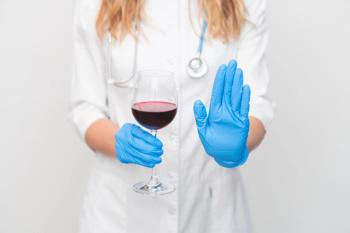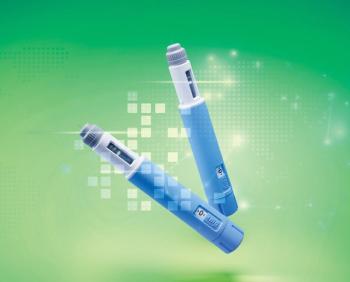
- Psychiatric Times Vol 15 No 9
- Volume 15
- Issue 9
Dramatic Alcohol Treatment Results Seen with Naltrexone
Results of a multicenter, open-label observational trial of DuPont Merck's REVIA (naltrexone) demonstrated that patients were able to decrease their alcohol consumption from 57 to four drinks per week when the medication was part of an overall treatment program.
Results of a multicenter, open-label observational trial of DuPont Merck's REVIA (naltrexone) demonstrated that patients were able to decrease their alcohol consumption from 57 to four drinks per week when the medication was part of an overall treatment program.
In this study of 3,000 patients, 71.3% of participants had begun drinking to intoxication before the age of 20, and 70% had been drinking to intoxication for 10 to 29 years. The results of the study found that 79% of the participants remained abstinent over the four weeks of treatment.
Preliminary results of the trial were presented at the annual meeting of the Research Society on Alcoholism by William J. Lynch Jr., clinical programs manager of medical affairs at DuPont. Lynch reported that the most frequent adverse clinical events were nausea (13.6%), headache (2.2%), dizziness (1.6%), insomnia (1.4%), fatigue (1.2%) and vomiting (1.1%). In addition, the severity of adverse clinical events was mild (43.9%) to moderate (42.4%). To combat nausea, investigators suggested dosing naltrexone with meals or at bedtime, interrupting or reducing the dose for a short period of time, or treating with antacids. Of those who experienced nausea, 77% reported it was a limited acute event.
The study population included individuals older than 18 who achieved one to six weeks of abstinence immediately prior to screening and who were actively participating in an alcohol rehabilitation treatment program that employed social and/or psychotherapeutic methods. The starting dose of naltrexone was 50 mg orally once daily after patients achieved a minimum of seven days of abstinence from alcohol consumption."Multiple clinical studies have demonstrated the effectiveness of REVIA as a treatment tool for alcohol dependence and also have highlighted nausea as the most significant adverse event," said Lynch. "This trial has provided clinicians with suggestions on treatment modalities that can help to manage nausea and allow patients to more comfortably continue with their alcohol dependency therapy."
Naltrexone was approved by the U.S. Food and Drug Administration for the treatment of alcoholism in January 1995. It was the first medication so approved in over 40 years-MB
Articles in this issue
over 27 years ago
CYP2A6 Variation May Protect Against Nicotine Addictionover 27 years ago
From Mars to Venus-Couples Sex Therapyover 27 years ago
Caring for the Physician in Couples Therapyover 27 years ago
The George Washington Bridgeover 27 years ago
Brain Imaging Exposes New Information on Cluster Headachesover 27 years ago
Controversial Study Investigates Therapeutic Benefit of Placeboover 27 years ago
The Impact of Psychotherapy on the BrainNewsletter
Receive trusted psychiatric news, expert analysis, and clinical insights — subscribe today to support your practice and your patients.







